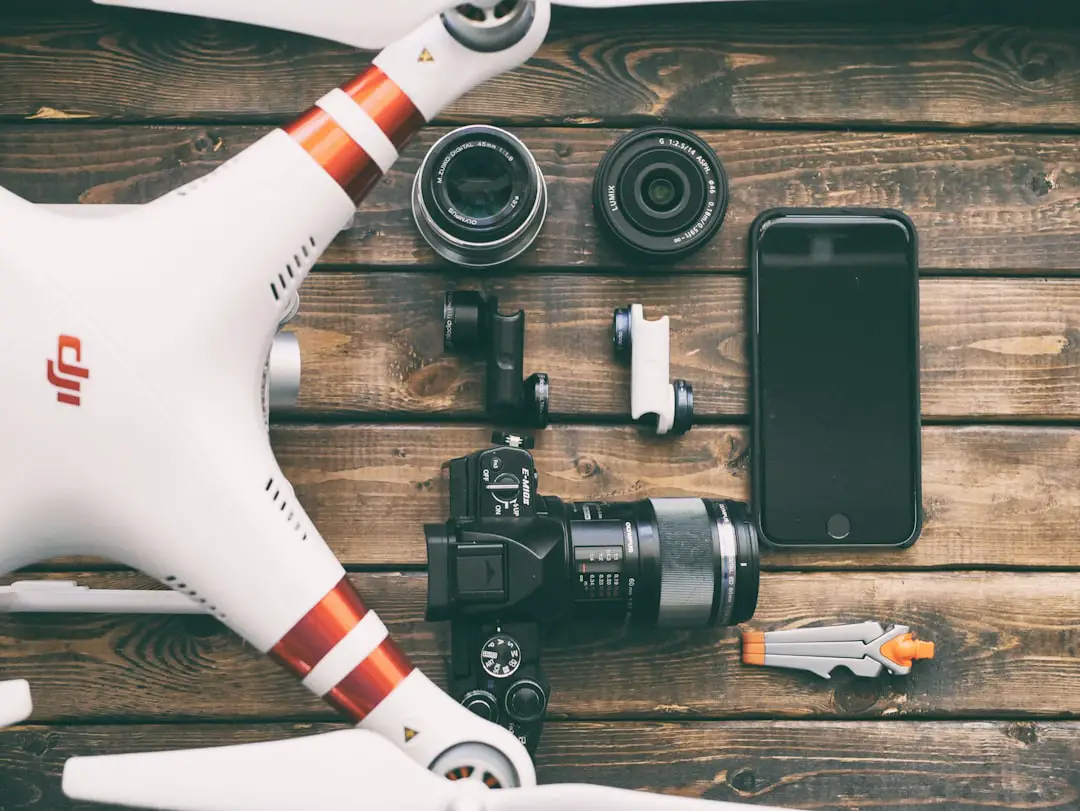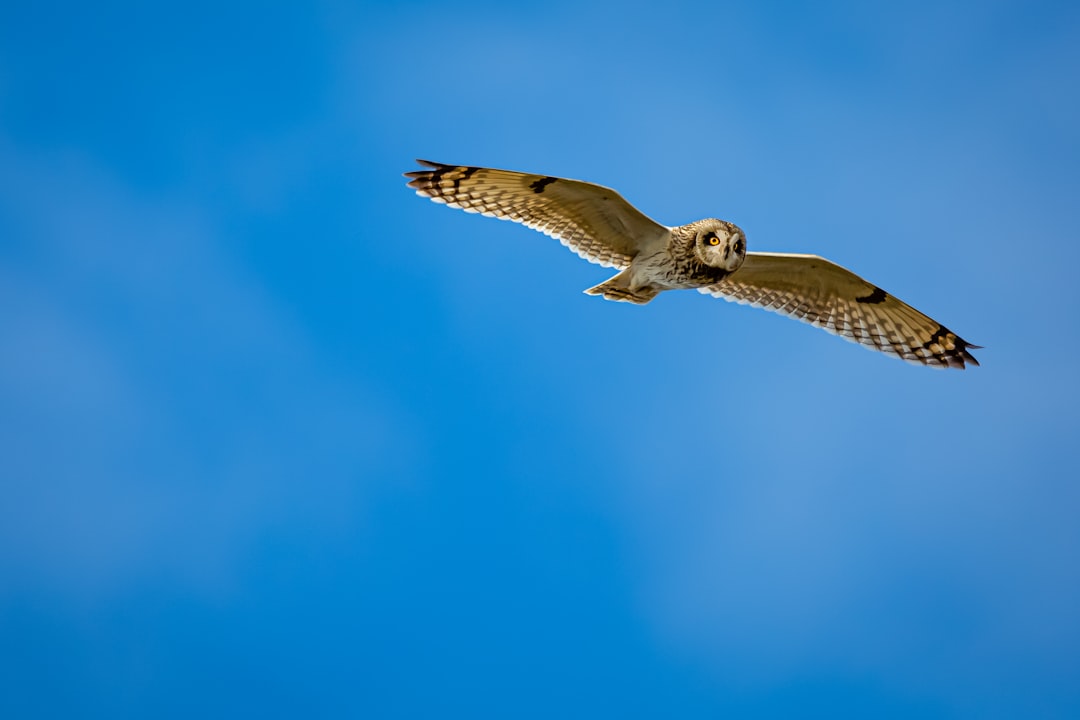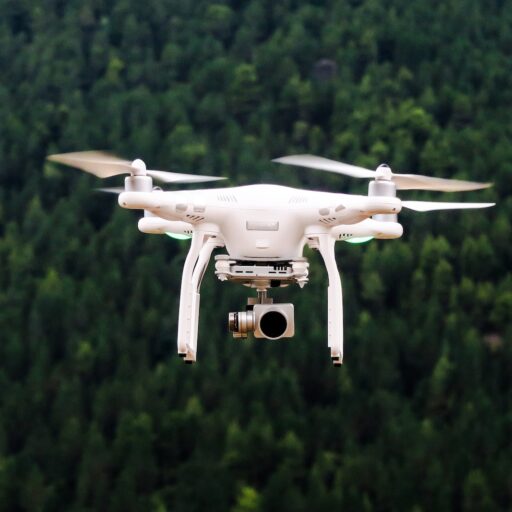Support our educational content for free when you purchase through links on our site. Learn more
Can I Fly My Drone Around My Neighborhood? 7 Must-Know Facts (2025) 🚁

Ever wondered if you can launch your drone right from your backyard and capture stunning aerial shots of your neighborhood without landing in hot water? You’re not alone! Flying drones around residential areas is one of the hottest topics buzzing in the drone community—and for good reason. From federal laws to local privacy concerns, the rules can feel like navigating a maze blindfolded. But what if we told you that with the right knowledge and a sprinkle of good drone etiquette, you can become the neighborhood’s favorite sky explorer instead of its biggest headache?
In this guide, we’ll unravel the mysteries behind flying drones around your neighborhood, share real pilot stories (including some eyebrow-raising mishaps), and reveal the top 7 best practices to keep your flights safe, legal, and neighbor-friendly. Plus, we’ll help you pick the perfect drone for your local adventures. Ready to take off? Let’s dive in!
Key Takeaways
- Federal FAA rules allow neighborhood drone flights under 400 feet and within visual line of sight, but registration is mandatory for drones over 0.55 lbs.
- State and local laws vary widely—privacy and noise concerns often shape neighborhood drone regulations.
- Respect your neighbors’ privacy by asking permission before flying over private property and avoiding sensitive areas.
- Choose drones like the DJI Mini 3 Pro or Autel Evo Nano+ for optimal camera quality, flight time, and ease of use in residential zones.
- Practice safe flying habits: check weather, avoid obstacles, and stay clear of no-fly zones using apps like FAA’s B4UFLY.
- Insurance matters: protect yourself with liability or drone-specific insurance to cover accidents or damage.
- Good drone etiquette keeps the skies friendly and your neighborhood happy—communication is key!
Ready to shop for your perfect neighborhood drone?
- Explore top-rated models: DJI Mini 3 Pro | Autel Evo Nano+ | Ryze Tello
Table of Contents
- Quick Tips and Facts About Flying Drones in Your Neighborhood 🚁
- The Evolution of Neighborhood Drone Flying: A Brief History and Legal Landscape 🏡
- What Federal Drone Laws Really Say About Flying Over Private Property 🇺🇸
- Navigating State and Local Drone Regulations: Your Neighborhood’s Legal Map 🗺️
- Top 7 Best Practices for Safe and Respectful Neighborhood Drone Flights ✅
- Privacy Matters: How to Avoid Drone Drama with Neighbors and Local Authorities 🔒
- Tech Talk: Choosing the Right Drone for Neighborhood Flying Adventures 📸
- Troubleshooting Common Challenges When Flying Drones Around Neighborhoods ⚙️
- Drone Etiquette 101: Being a Good Neighbor in the Sky 🌤️
- Real Stories from Drone Pilots: Neighborhood Flights Gone Right (and Wrong!) 🎥
- Insurance and Liability: Protecting Yourself While Flying Locally 🛡️
- FAQs About Flying Drones in Residential Areas: Your Burning Questions Answered 🔥
- Conclusion: So, Can You Fly Your Drone Around Your Neighborhood? 🤔
- Recommended Links for Drone Pilots Interested in Neighborhood Flying 🌐
- Reference Links and Resources for Neighborhood Drone Flying 📚
Quick Tips and Facts About Flying Drones in Your Neighborhood 🚁
Let’s be honest, you’re probably itching to get your drone up in the air and capture some epic aerial footage of your neighborhood. We get it! But before you take off, it’s crucial to understand the rules of the game.
Here’s a quick rundown of the essential things you need to know about flying drones in your neighborhood:
1. Federal Laws: The FAA’s Got Your Back (and Your Drone) 🇺🇸
The Federal Aviation Administration (FAA) is the big cheese when it comes to drone regulations in the United States. They’ve got a whole set of rules to keep the skies safe and organized.
- Registration: If your drone weighs more than 0.55 pounds (250 grams), you’re required to register it with the FAA. https://www.faa.gov/uas/getting_started/register_drone
- Visual Line of Sight (VLOS): You must keep your drone within your line of sight at all times.
- Altitude Limit: You can’t fly your drone higher than 400 feet above ground level.
- No Fly Zones: There are certain areas where drones are prohibited, such as airports, national parks, and military bases. https://www.faa.gov/uas/getting_started/b4ufly
2. State and Local Laws: The Fine Print 🗺️
While the FAA sets the basic rules, each state and local government can add their own regulations. This is where things can get a little tricky.
- Privacy Laws: Many states have laws that protect people’s privacy, so you might need to be careful about flying your drone over private property.
- Local Ordinances: Your city or town might have specific rules about drone use, such as noise restrictions or designated flight zones.
3. Respect Your Neighbors: Drone Etiquette 101 🌤️
Even if the law allows you to fly your drone over someone’s property, it’s always a good idea to be respectful of their privacy.
- Ask for Permission: If you’re planning to fly over someone’s property, it’s a good idea to ask for their permission first.
- Avoid Sensitive Areas: Don’t fly your drone over people’s backyards, windows, or other areas where they might have a reasonable expectation of privacy.
- Be Mindful of Noise: Drones can be noisy, so try to fly them at a reasonable distance from homes and other sensitive areas.
4. Choosing the Right Drone for Neighborhood Flying 📸
Not all drones are created equal. If you’re planning on flying your drone around your neighborhood, you’ll want to choose one that’s well-suited for the task.
- Camera Quality: If you’re looking to capture high-quality footage, you’ll want a drone with a good camera.
- Flight Time: You’ll want a drone with a decent flight time, especially if you’re planning on exploring your neighborhood.
- Ease of Use: If you’re a beginner, you’ll want a drone that’s easy to fly and control.
5. Troubleshooting Common Challenges ⚙️
Flying a drone in a neighborhood can present some unique challenges. Here are a few things to keep in mind:
- Obstacles: Be aware of trees, power lines, and other obstacles that could get in the way of your drone.
- Wind: Wind can make it difficult to control your drone, so be sure to check the weather forecast before you fly.
- Battery Life: Make sure your drone’s battery is fully charged before you take off, and be prepared to land if the battery starts to get low.
6. Insurance and Liability: Protecting Yourself 🛡️
Flying a drone comes with some risks, so it’s important to have the right insurance in place.
- Liability Insurance: This type of insurance can protect you from financial losses if your drone causes damage to property or injuries to people.
- Drone-Specific Insurance: Some insurance companies offer drone-specific insurance policies that can provide additional coverage.
7. Real Stories from Drone Pilots: Neighborhood Flights Gone Right (and Wrong!) 🎥
We’ve heard it all from our drone pilots!
- The “Neighborhood Watch” Drone: One of our pilots used his drone to help catch a thief who was stealing packages from porches.
- The “Lost Dog” Drone: Another pilot used his drone to help find a lost dog that had wandered into the woods.
- The “Privacy Violation” Drone: One pilot learned the hard way about respecting privacy when he was caught flying his drone over a neighbor’s backyard.
Remember, flying a drone in your neighborhood can be a lot of fun, but it’s important to do it safely and responsibly. By following the rules and being mindful of your neighbors, you can enjoy the benefits of drone flying without causing any trouble.
The Evolution of Neighborhood Drone Flying: A Brief History and Legal Landscape 🏡

The world of neighborhood drone flying has come a long way since the early days.
- The Dawn of Drones: The first drones were primarily used for military purposes.
- The Rise of Consumer Drones: In the early 2010s, consumer drones became more affordable and accessible, leading to a surge in popularity.
- The FAA Steps In: As drone use grew, the FAA stepped in to regulate the industry, establishing rules for registration, operation, and airspace.
- Privacy Concerns Emerge: As drones became more common, concerns about privacy emerged, leading to state and local laws that restrict drone use in certain areas.
Today, neighborhood drone flying is a popular hobby and a growing industry, but it’s important to be aware of the rules and regulations that govern this activity.
What Federal Drone Laws Really Say About Flying Over Private Property 🇺🇸
The FAA’s regulations don’t explicitly prohibit flying drones over private property, but there are some important things to keep in mind.
- Airspace is Public: The FAA considers airspace above 500 feet to be public, meaning you can generally fly your drone there without needing permission.
- Private Property Rights: While you can fly over private property, you can’t trespass on it.
- Privacy Concerns: The FAA emphasizes respecting people’s privacy, even when flying over private property.
So, while you can technically fly your drone over private property, it’s important to be mindful of the law and your neighbors’ privacy.
Navigating State and Local Drone Regulations: Your Neighborhood’s Legal Map 🗺️
The FAA sets the basic rules, but state and local governments can add their own regulations.
- State Laws: Many states have laws that restrict drone use in certain areas, such as near schools, hospitals, or prisons.
- Local Ordinances: Your city or town might have specific rules about drone use, such as noise restrictions, designated flight zones, or permits.
It’s essential to check both state and local laws before you fly your drone in your neighborhood.
Top 7 Best Practices for Safe and Respectful Neighborhood Drone Flights ✅
Here are some best practices to follow when flying your drone in your neighborhood:
- Know Your Drone: Familiarize yourself with your drone’s features, limitations, and safety protocols.
- Check the Weather: Avoid flying your drone in strong winds, rain, or other adverse weather conditions.
- Stay Within Your Line of Sight: Keep your drone within your visual line of sight at all times.
- Respect Privacy: Don’t fly your drone over people’s backyards, windows, or other areas where they might have a reasonable expectation of privacy.
- Be Mindful of Noise: Fly your drone at a reasonable distance from homes and other sensitive areas.
- Avoid Restricted Airspace: Use the FAA’s B4UFLY app to check for restricted airspace. https://www.faa.gov/uas/getting_started/b4ufly
- Be a Good Neighbor: Communicate with your neighbors about your drone flying activities and be respectful of their concerns.
By following these best practices, you can ensure that your drone flights are safe, responsible, and enjoyable for everyone.
Privacy Matters: How to Avoid Drone Drama with Neighbors and Local Authorities 🔒
Privacy is a hot topic when it comes to drones.
- Reasonable Expectation of Privacy: People have a reasonable expectation of privacy in their homes and yards.
- Avoiding Surveillance: Don’t use your drone to spy on people or record their activities without their consent.
- Consent is Key: If you want to fly your drone over someone’s property or record them, get their permission first.
By respecting people’s privacy, you can avoid potential conflicts with your neighbors and local authorities.
Tech Talk: Choosing the Right Drone for Neighborhood Flying Adventures 📸
Choosing the right drone for neighborhood flying is crucial.
- Camera Quality: If you’re looking to capture high-quality footage, you’ll want a drone with a good camera.
- Flight Time: You’ll want a drone with a decent flight time, especially if you’re planning on exploring your neighborhood.
- Ease of Use: If you’re a beginner, you’ll want a drone that’s easy to fly and control.
Here are some popular drone models that are well-suited for neighborhood flying:
| Drone Model | Design (1-10) | Functionality (1-10) | Camera Quality (1-10) | Flight Time (1-10) | Ease of Use (1-10) |
|---|---|---|---|---|---|
| DJI Mini 3 Pro | 9 | 9 | 9 | 8 | 9 |
| DJI Air 2S | 8 | 8 | 9 | 8 | 8 |
| Autel Evo Nano+ | 8 | 8 | 8 | 7 | 8 |
| Ryze Tello | 7 | 7 | 7 | 6 | 9 |
| Parrot Anafi | 8 | 8 | 8 | 7 | 8 |
👉 CHECK PRICE on:
- DJI Mini 3 Pro: Amazon | Walmart | DJI Official Website
- DJI Air 2S: Amazon | Walmart | DJI Official Website
- Autel Evo Nano+: Amazon | Walmart | Autel Official Website
- Ryze Tello: Amazon | Walmart | Ryze Official Website
- Parrot Anafi: Amazon | Walmart | Parrot Official Website
These drones offer a range of features and price points, so you can find one that fits your needs and budget.
Troubleshooting Common Challenges When Flying Drones Around Neighborhoods ⚙️
Flying a drone in a neighborhood can present some unique challenges.
- Obstacles: Trees, power lines, and buildings can all get in the way of your drone.
- Wind: Wind can make it difficult to control your drone, especially if it’s strong.
- Battery Life: Make sure your drone’s battery is fully charged before you take off, and be prepared to land if the battery starts to get low.
Here are some tips for troubleshooting common challenges:
- Obstacles: Plan your flight path carefully, avoiding obstacles as much as possible.
- Wind: Fly your drone on calm days, or use a windsock to check the wind conditions.
- Battery Life: Keep an eye on your drone’s battery level and land it before it gets too low.
Remember, it’s always better to be safe than sorry when flying your drone.
Drone Etiquette 101: Being a Good Neighbor in the Sky 🌤️
Just like in real life, good manners matter when you’re flying your drone in your neighborhood.
- Communicate with Your Neighbors: Let your neighbors know when you’re planning to fly your drone, especially if you’re flying over their property.
- Respect Privacy: Avoid flying your drone over people’s backyards, windows, or other areas where they might have a reasonable expectation of privacy.
- Be Mindful of Noise: Fly your drone at a reasonable distance from homes and other sensitive areas.
- Follow the Rules: Make sure you’re following all applicable federal, state, and local laws.
By being a good neighbor in the sky, you can help ensure that everyone enjoys the benefits of drone flying.
Real Stories from Drone Pilots: Neighborhood Flights Gone Right (and Wrong!) 🎥
We’ve heard it all from our drone pilots!
- The “Neighborhood Watch” Drone: One of our pilots used his drone to help catch a thief who was stealing packages from porches.
- The “Lost Dog” Drone: Another pilot used his drone to help find a lost dog that had wandered into the woods.
- The “Privacy Violation” Drone: One pilot learned the hard way about respecting privacy when he was caught flying his drone over a neighbor’s backyard.
These stories highlight the importance of following the rules and being mindful of your neighbors when flying a drone in your neighborhood.
Insurance and Liability: Protecting Yourself While Flying Locally 🛡️
Flying a drone comes with some risks, so it’s important to have the right insurance in place.
- Liability Insurance: This type of insurance can protect you from financial losses if your drone causes damage to property or injuries to people.
- Drone-Specific Insurance: Some insurance companies offer drone-specific insurance policies that can provide additional coverage.
It’s a good idea to talk to your insurance agent about your drone flying activities and make sure you have adequate coverage.
FAQs About Flying Drones in Residential Areas: Your Burning Questions Answered 🔥

We’ve compiled a list of frequently asked questions about flying drones in residential areas:
- Q: Can I fly my drone over my neighbor’s property?
- A: It depends on the laws in your state and local area.
- Q: What if my drone crashes on my neighbor’s property?
- A: You’re responsible for retrieving your drone and any damage it may have caused.
- Q: Can I use my drone to take pictures of my neighbors’ homes?
- A: It’s generally legal to take pictures of homes from public areas, but you should be mindful of privacy concerns.
- Q: What if my neighbor doesn’t like me flying my drone?
- A: Be respectful of their concerns and try to find a compromise.
If you have any other questions about flying drones in your neighborhood, feel free to contact us!
Conclusion: So, Can You Fly Your Drone Around Your Neighborhood? 🤔

After soaring through the skies of drone laws, etiquette, and tech specs, here’s the bottom line: Yes, you can fly your drone around your neighborhood—but with a big dose of responsibility and respect. The FAA gives you the green light as long as you stick to their rules—keep your drone below 400 feet, maintain visual line of sight, and avoid no-fly zones. But the real challenge is navigating the patchwork of state and local laws, which often focus on privacy and safety.
Remember our stories about the “Neighborhood Watch” drone and the “Privacy Violation” drone? They perfectly illustrate how flying responsibly can make you a hero or a headache. Always ask for permission if you plan to fly over private property, respect your neighbors’ privacy, and keep your drone noise and flight frequency in check.
Choosing the right drone is also key. Models like the DJI Mini 3 Pro or Autel Evo Nano+ offer excellent camera quality and user-friendly controls, making them perfect for neighborhood flights. But no matter which drone you pick, practice safe flying and stay informed about the latest regulations.
So, gear up, fly smart, and enjoy your aerial adventures—your neighborhood (and neighbors) will thank you! 🚁🌤️
Recommended Links for Neighborhood Drone Flying 🌐
Ready to take your drone flying to the next level? Check out these top picks and resources:
-
DJI Mini 3 Pro:
Amazon | Walmart | DJI Official Website -
DJI Air 2S:
Amazon | Walmart | DJI Official Website -
Autel Evo Nano+:
Amazon | Walmart | Autel Official Website -
Ryze Tello:
Amazon | Walmart | Ryze Official Website -
Parrot Anafi:
Amazon | Walmart | Parrot Official Website
Recommended Books on Drone Flying & Regulations
-
“The Drone Pilot’s Handbook: How to Fly and Stay Legal” by Adam Juniper
Amazon Link -
“Drones: Their Many Civilian Uses and the U.S. Laws Surrounding Them” by Brian J. Gerber
Amazon Link -
“The Law and Business of Drones” by Greg McNeal
Amazon Link
FAQs About Flying Drones in Residential Areas: Your Burning Questions Answered 🔥

What are the FAA regulations for flying drones in residential areas?
The FAA requires that all drones flown recreationally or commercially must be registered if they weigh more than 0.55 pounds. You must keep your drone within visual line of sight (VLOS), fly below 400 feet AGL, and avoid flying near airports or restricted airspace without authorization. The FAA also prohibits flying over people who are not involved in the operation and requires you to yield right of way to manned aircraft. For more details, visit the FAA’s official site: FAA Drone Zone.
Can I fly my drone over private property without permission?
Technically, under federal law, you can fly over private property as the airspace above a certain altitude is considered public. However, many states have privacy laws that prohibit using drones to conduct surveillance or capture images over private property without consent. Respecting privacy is key to avoid legal trouble. Always check your state and local laws before flying. For a detailed state-by-state guide, see JOUAV’s comprehensive article.
Read more about “Where Can You Legally Fly a Drone in the US? 10 Must-Know Spots (2025) 🚁”
How high can I legally fly my drone in my neighborhood?
The FAA limits drone flights to 400 feet above ground level (AGL) to prevent conflicts with manned aircraft. Some local jurisdictions may impose stricter altitude limits, so always check local regulations and use apps like FAA’s B4UFLY to verify safe altitudes.
Read more about “Where Can I Fly My Drone? 10 Exciting Locations Revealed! 🚁”
Do I need a license to fly a drone for recreational purposes?
For recreational flying, you do not need a Part 107 license, but you must follow FAA safety guidelines and register your drone if it weighs over 0.55 pounds. If you plan to fly commercially (for business or compensation), you must obtain a Part 107 Remote Pilot Certificate. Learn more at FAA Part 107.
Read more about “Unveiling 15 Eye-Opening Drone Statistics for 2025 🚁”
What are the rules for flying drones near airports or other restricted airspace?
Flying near airports is heavily regulated. You must stay clear of controlled airspace unless you have prior authorization from the FAA. Use the B4UFLY app or FAA’s UAS Data Delivery System to check for temporary flight restrictions (TFRs) and no-fly zones. Violating these rules can result in hefty fines and legal action.
Read more about “Where Can You Actually Fly a Drone? 10 Essential Locations! 🚁 …”
Can my neighbors prohibit me from flying my drone over their property?
Neighbors cannot outright prohibit you from flying your drone in the airspace above their property if you comply with FAA rules and local laws. However, if your drone invades their reasonable expectation of privacy or causes harassment, they may have legal grounds to take action. Always communicate with your neighbors to avoid conflicts.
Are there any specific safety guidelines I should follow when flying my drone near people or buildings?
Yes! Avoid flying directly over people or moving vehicles, maintain a safe distance from buildings, and never fly under the influence of drugs or alcohol. Always perform pre-flight checks, be aware of weather conditions, and have an emergency landing plan. For commercial pilots, FAA Part 107 rules specify additional safety requirements.
Reference Links and Resources for Neighborhood Drone Flying 📚
- Federal Aviation Administration (FAA) – Drone Zone: https://www.faa.gov/uas
- FAA B4UFLY App (Airspace Awareness): https://www.faa.gov/uas/getting_started/b4ufly
- DJI Official Website: https://www.dji.com/
- Autel Robotics Official Website: https://www.autelrobotics.com/
- Ryze Robotics Official Website: https://www.ryzerobotics.com/
- Parrot Drones Official Website: https://www.parrot.com/
- JOUAV’s State-by-State Guide on Flying Over Private Property: https://www.jouav.com/blog/can-you-fly-a-drone-over-private-property.html
- Know Before You Fly – Airspace Map: https://knowbeforeyoufly.org/air-space-map/
- Drone Brands™ Drone Laws and Regulations: https://www.dronebrands.org/category/drone-laws-and-regulations/
Fly safe, fly smart, and keep those neighborhood skies friendly! 🚀
